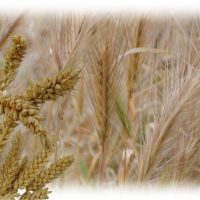Prayers of Approach
God of grace and glory, we come to you in awe and wonder, for you are the Lord of all creation. You have made us in your image and likeness, and called us to be your children. You have chosen us to be your heirs, and invited us to share in your kingdom. Help us to worship you in spirit and in truth, to listen to your Word with faith and obedience, to receive your grace with humility and gratitude and to share your love with justice and mercy.
Holy God, you show no favouritism but welcome all into your kingdom – all have a place with you. Your heart is for the poor and those on the margins – you embrace the weak and needy. Your compassion is everlasting and your mercy never fails. We adore you, O God, with all our heart, soul, mind and strength.
Coming together in many places, let us open our eyes to see Jesus in the faces of our sisters and brothers. Let us open our hearts and minds that we may respect and value one another as God’s beloved children. We ask this in the name of Jesus Christ, our Lord and Saviour.
Amen.
Hymn God is love; his the care (R&S 274)
Readings: James 2:1-10, (11-13), 14-17
Mark 7:24-37
Introduction
After healing and teaching in Jewish territory, Jesus moves to the Gentile region of Tyre and Sidon. In Tyre, a Gentile woman begs Jesus to heal her daughter. At first Jesus rebuffs the woman, but she argues back and the child is healed. Travelling on through Sidon, Jesus heals a deaf man, and his reputation as a healer spreads. They are Gentiles in need of healing: full of hope, and faith in Jesus’ healing ability. Jesus heals them, then continues on his journey, urging the crowds to keep quiet about what he has done.
The reading explores how outsiders are included in our journey of faith. The Gentile woman and the disabled man are both people who were considered to be outsiders in Jesus’ society. But there are no borders to God’s love and welcome.
In James’ letter he gives a vivid example of people being treated differently in the worshipping community, with the rich and important being favoured over the poor and needy. He is stark in his declaration that showing partiality in this way falls short of God’s standards. This passage also contains his famous pronouncement that faith without works is dead. It is a compelling reminder that God is merciful, and we should do the same in our lives and our communities.
Hymn Brother, sister, let me serve you (R&S 474)
Sermon
Do we need to review our practice of inclusion in worship and in our outreach? Should we be asking ourselves who are we excluding and why? Our readings today are about justice and fairness, illustrated by examples of who is included or excluded by Jesus’ Jewish community (and seemingly even by Jesus himself), and by an early Christian community of mainly Jewish believers.
Jesus’ own ministry focussed almost entirely on Jews and, although there are a few incidences of him healing Gentiles such as the centurion’s servant and the two healings in today’s reading, in Matthew’s version of the story of the woman and her daughter Jesus even declares, ‘I have been sent only to the lost sheep of Israel’. Neither Matthew nor Mark attempt to disguise Jesus’ harsh reply and his use of the Jewish insult of ‘dogs’ to describe foreigners. His crude response today would lead to accusations of racism or xenophobia but in a foreign land in conversation with a woman of a different nationality is brutally honest. Jesus’ initial reaction may have dealt with her ethnicity or spiritual condition but not her humanity or that of her daughter. Thankfully, not deterred by his abrupt response, she persevered acknowledging his special relationship with Israel but showing that she too is worthy of his attention and the blessings offered.
James’ teaching is set firmly within the Jewish traditions of embracing the cause of the poor and vulnerable and not to give special treatment to the rich and powerful, and he boldly declares ‘Do you with your acts of favouritism really believe in our Lord, Jesus Christ?’ For him the teaching of the Old Testament was vital in understanding the way the Christian community should care for those in need. The prophets and Jewish teachers down the centuries had emphasised the importance of respecting and valuing others and caring for the most vulnerable in society as enshrined in the Law. Rabbi Hillel, when challenged to teach the whole law while standing on one leg, replied, ‘What is hateful to you do not do to your neighbour.’ James parallels Jesus’ way of putting these lessons into a positive sense as he too quotes from the book of Leviticus, ‘Love your neighbour as yourself,’ calling it the ‘royal law’ according to the scriptures.
For James the ‘royal law’ is indeed the ‘whole law.’ And it is more than just words. Right words need to be translated into right actions – it is no good to have faith but do nothing about it. For James, ‘faith by itself, if it has no works, is dead.’ It is easy to pray for the poor but when it comes to the way we act are we living as generously as God gives to us? James sets Jesus within his Jewish tradition of care for the disadvantaged as an expression of the generosity of God. Mark goes further, presenting him as generous to Gentiles, disadvantaged by their exclusion from the blessings of Israel. How can we avoid ‘favouritism’ in the church? Who in our society needs to know that God is generous, and how can we embody that generosity?
Hymn Jesus’ hands were kind hands (R&S 199)
Prayers of Intercession
Generous God, thank you for the blessings of each day, for friends and neighbours, work and leisure, nature and beauty. Merciful God, thank you that you set prisoners free and bring about justice for the oppressed. You watch over strangers and uphold the vulnerable.
God of harmony, we pray for peace throughout the world. We think of the Ukrainians after all they have suffered and for the residents of Gaza living in fear. We ask that you will give them comfort and strength. It is hard for us to pray for the aggressors in these conflicts but we commend them to you with all their needs and apprehensions.
Give us the courage and discernment Not to take sides in our prayers.
God of compassion, we pray for the government and all members of parliament as they make decisions about the economy of our country. At times we will rejoice; at times we will be angry. May decision makers, those in authority and those whose role is opposition be guided and inspired by compassion and the general good.
Give us the courage and discernment Not to take sides in our prayers.
God of healing, we pray for those who are waiting for tests or test results; for families and friends who are anxious. We think of those who will receive bad news this week and those who have to deliver bad news. We commend to you all who are ill at home and in hospital and those who look after them. Give wisdom and discernment to those who make management decisions
Give us the courage and discernment Not to take sides in our prayers.
God present with and within us, we pray for ourselves especially concerning any decisions we have to make this week. Grant us wisdom that we may exercise good judgment. Grant us equity in all that we say and help us to ensure that our thoughts and attitudes are not biased. May we show fairness in all our relationships and interactions.
Give us the courage and discernment Not to take sides in our prayers.
We ask that in the name of the one who loves all with the same boundless, immeasurable love.
Amen
Hymn The kingdom of God is justice and joy (R&S 200)
Blessing
Let us go and share God’s love in the care of our neighbours, building up community in the words we speak, building up new friendships by showing care, building up God’s kingdom here on earth.
And as we go through the coming week, O God, may your blessing rest on us, prosper and multiply our works, that we may bear fruit in Jesus Christ our Lord.
Amen.
Prayers and other material (adapted) © Roots for Churches Ltd. Used by permission.







